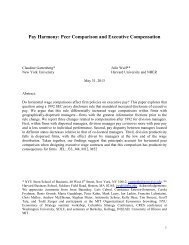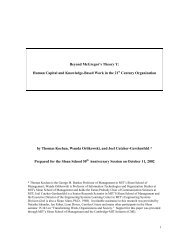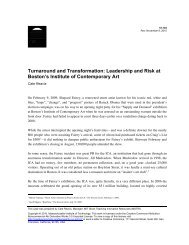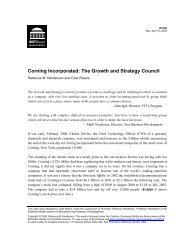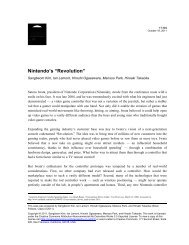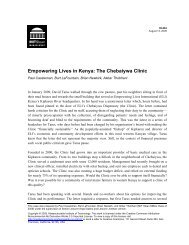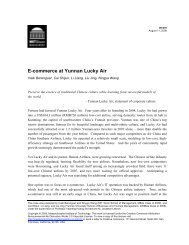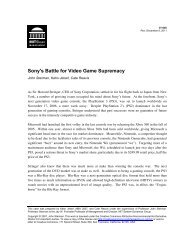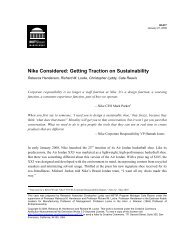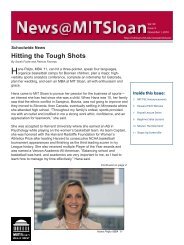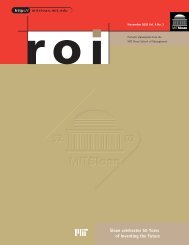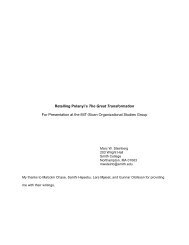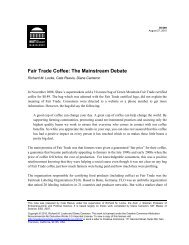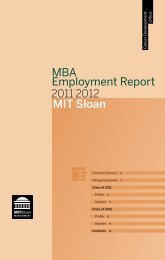Understanding earnings quality - MIT Sloan School of Management
Understanding earnings quality - MIT Sloan School of Management
Understanding earnings quality - MIT Sloan School of Management
You also want an ePaper? Increase the reach of your titles
YUMPU automatically turns print PDFs into web optimized ePapers that Google loves.
The notion that accounting method choice is opportunistically used for <strong>earnings</strong> management<br />
purposes, thus reducing the overall <strong>quality</strong> <strong>of</strong> <strong>earnings</strong>, does not get much support. It is not the case<br />
that cash flow methods dominate accrual-based methods that involve estimation (Dharan, 1987) or<br />
that more “aggressive” income recognition methods are viewed as opportunistic (Loudder and Behn,<br />
1995; Altamuro et al., 2005). Moreover, investors appear to efficiently adjust their valuation<br />
decisions to reflect information that is not reported (Lev and Sougiannis, 1996). Investors also<br />
appear to adjust their valuations when they anticipate <strong>earnings</strong> management (Aboody et al., 1999).<br />
5.3 Governance and controls as determinants <strong>of</strong> <strong>earnings</strong> <strong>quality</strong><br />
Using the terminology <strong>of</strong> Jensen and Meckling (1976), internal controls include monitoring<br />
mechanisms, optimally chosen by the principal in the principal-agent relationship, as well as<br />
bonding mechanisms, optimally chosen by the agent at some cost. The mechanisms we discuss in<br />
this section include: 1) The Board <strong>of</strong> directors (BOD); 2) Internal control procedures, 52 3)<br />
Managerial share ownership; 4) Managerial compensation; and 5) Managerial change. The studies<br />
associated with the BOD and internal control procedures view internal controls as monitors <strong>of</strong> the<br />
financial reporting system that constrain a manager’s opportunity or ability to manage <strong>earnings</strong>,<br />
while the studies <strong>of</strong> managerial share ownership and managerial compensation are predicted to affect<br />
<strong>earnings</strong> <strong>quality</strong> because they provide incentives for <strong>earnings</strong> management. 53 In both cases, internal<br />
controls affect <strong>earnings</strong> management, and discretionary accruals and accounting misstatements are<br />
popular measures <strong>of</strong> <strong>earnings</strong> <strong>quality</strong>.<br />
52 We emphasize the distinction between “internal controls” as the term is used by Jensen and Meckling (1976), which<br />
includes what researchers commonly refer to as corporate governance mechanisms, from internal control “procedures.”<br />
We will use the term internal control procedures for the tasks performed to monitor the financial reporting system.<br />
53 See Ng and Steockenius (1979), Lambert (1984), Verrecchia (1986), Dye (1988) and Liang (2004).<br />
92



